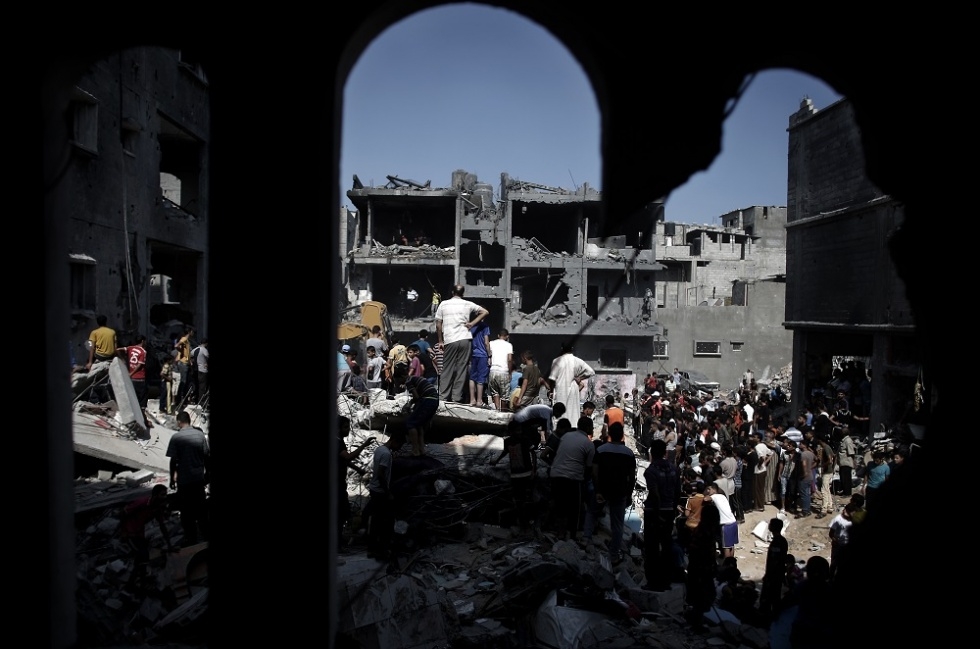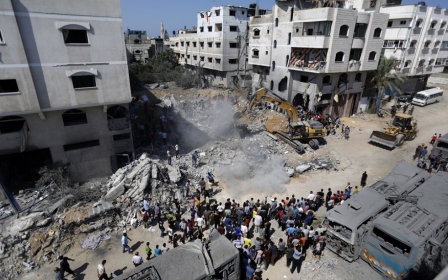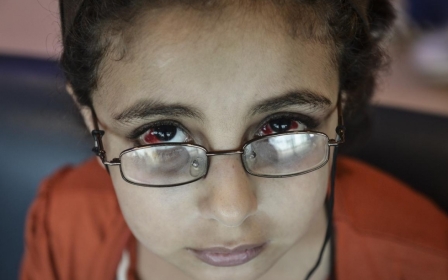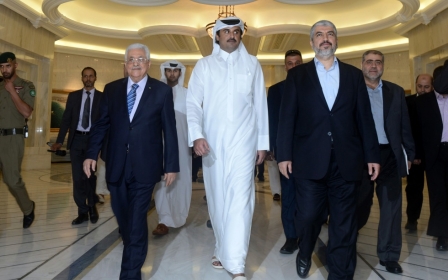Europe pushes for draft UN Israel-Gaza ceasefire resolution

In a document obtained by AFP, the three countries urged an immediate and sustainable ceasefire that would put an end to the firing of rockets and military operations in the Gaza Strip.
It calls for a lifting of the Israeli blockade and a monitoring mechanism to report on ceasefire violations and verify the flow of goods into the Gaza Strip.
Diplomats said the text was aimed at advancing efforts to reach agreement within the 15-member UN Security Council on a resolution after Jordan's draft text met with resistance, notably from the United States.
The so-called "elements" document lays out the parameters for a ceasefire deal that would address Israel's security concerns and meet Palestinian demands.
It asks UN Secretary-General Ban Ki-moon to immediately come up with proposals to "implement the relevant provisions" in a move that could jump-start peace negotiations.
Bid to shore up Egypt's mediation
UN diplomats said they hoped the initiative would shore up the Egyptian-led peace track and lead to a lasting ceasefire that would avoid a relapse into war.
More than 2,083 Palestinians have been killed in the conflict that began on 8 July, most of them civilians, according to UN officials.
The European-drafted document calls for the return of the Palestinian Authority to Gaza, which has been under Hamas control for the past seven years.
It provides for the lifting of economic and humanitarian restrictions on the Gaza Strip to allow for a massive reconstruction effort, and for the re-opening of border crossings.
An international monitoring and verification mission would be established with a mandate to report on ceasefire violations and check the flow of goods into Gaza - a key point missing from the Jordanian draft resolution.
Ban has pledged international help to rebuild Gaza but warned that this would be "for the last time" after three wars in six years.
As the six-week war between Israel and Hamas raged on leaving truce talks in tatters, a pre-dawn air strike Thursday killed three members of the Islamist movement's armed wing, the Ezzedine al-Qassam Brigades.
The Brigades said they were "senior commanders", identifying them as Mohammed Abu Shamala, Raed al-Atar and Mohammed Barhum, and vowed to make Israel pay.
"The assassination... is a big Israeli crime, which will not succeed in breaking our will or weakening our resistance," Hamas spokesman Sami Abu Zuhri said.
Israel's Shin Bet internal security agency said Atar and Shamala were among the top five most-wanted Hamas members.
Defence Minister Moshe Yaalon hailed their deaths as "a big operational and intelligence achievement", and warned that Israel would not hesitate to track down the rest of the group's leaders.
Witnesses said nine missiles blasted the four-storey building in Rafah to smithereens, leaving a huge crater.
Four surrounding buildings had their doors and windows blown out and some outer walls destroyed.
The body of Sabah Yunis, a four-year-old girl, was also pulled from the rubble, emergency services spokesman Ashraf al-Qudra said.
Abbas meets Meshaal
The deadly strikes came 36 hours after Israel tried and failed to assassinate Brigades chief Mohammed Deif, who has topped its most wanted list for more than a decade.
That attack levelled a six-storey building in Gaza City, killing two women and three children, among them Deif's wife, his infant son and three-year-old daughter. It has not been confirmed whether Deif survived the attack, although Hamas insist he is alive and still in control.
Around 27 people were killed in Israeli strikes across Gaza Thursday, day 45 of the bloody conflict. Others died of wounds, raising the overall death toll to 2,083 Palestinians since the conflict started in July.
The UN has identified about 70 percent of the dead as civilians.
On the Israeli side, 64 soldiers and three civilians have been killed.
UN aid workers stepped up calls for an urgent ceasefire, warning that spiralling violence endangered their ability to respond to the needs of Gaza's 1.8 million people.
Despite the collapse of the negotiations, Palestinian president Mahmud Abbas held talks in Qatar with exiled Hamas chief Khaled Meshaal, official Palestinian and Gulf news agencies said.
Also present were Azzam al-Ahmed, who led the Palestinian delegation at truce talks in Cairo, senior negotiator Saeb Erakat and Palestinian intelligence chief Majid Faraj.
Arms embargo?
Israeli confidence in Prime Minister Benjamin Netanyahu has steadily declined during the war, but his 53 percent approval rating is still higher than before the conflict, according to a survey for the private Channel 2 television.
British aid charity Oxfam, meanwhile, urged the international community to "immediately suspend transfers of arms or ammunition while there is serious risk that they could be used to violate international humanitarian law".
It said the widespread killing of civilians and destruction of civilian infrastructure during the Israeli operation was the worst it had witnessed in 20 years of working in Gaza.
Middle East Eye propose une couverture et une analyse indépendantes et incomparables du Moyen-Orient, de l’Afrique du Nord et d’autres régions du monde. Pour en savoir plus sur la reprise de ce contenu et les frais qui s’appliquent, veuillez remplir ce formulaire [en anglais]. Pour en savoir plus sur MEE, cliquez ici [en anglais].




